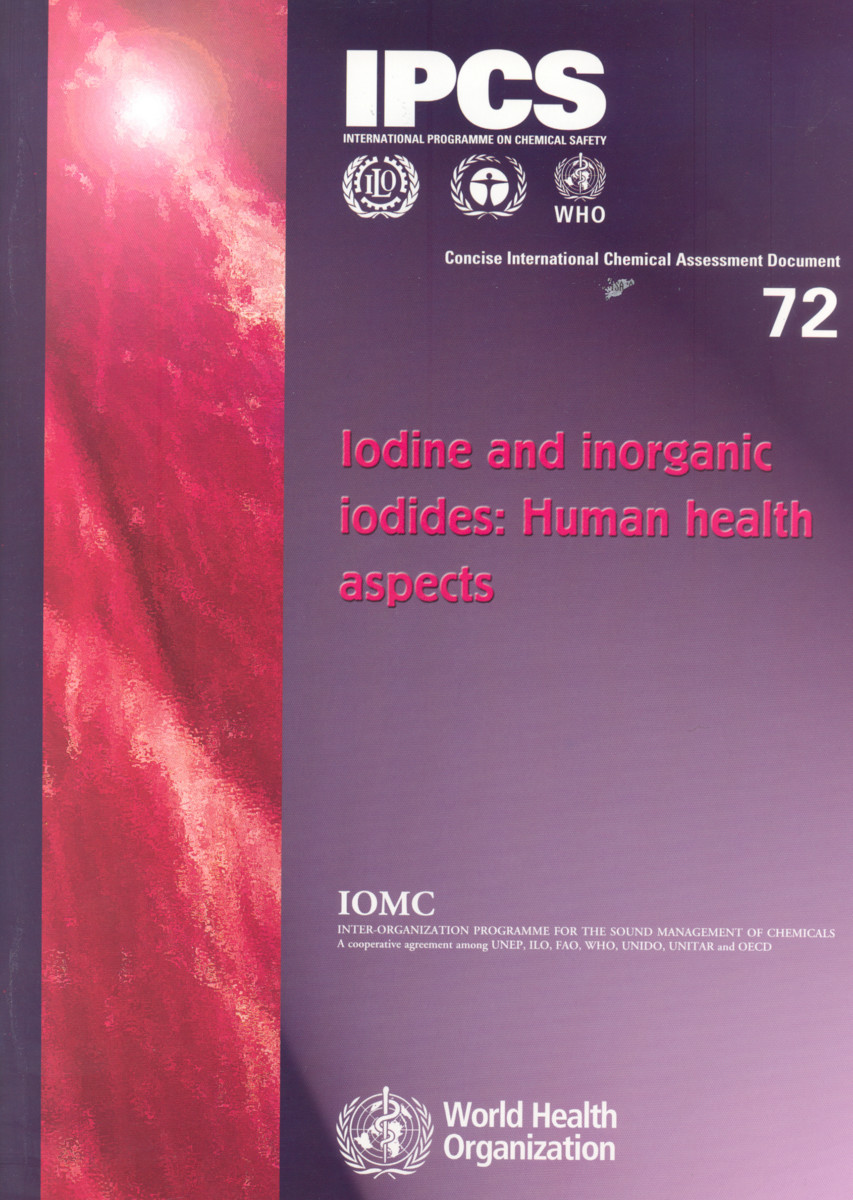Iodine and Inorganic Iodines
Human Health Aspects
- Publisher
World Health Organization - Published
19th October 2006 - ISBN 9789241530729
- Language English
- Pages 50 pp.
- Size 8.5" x 11.75"
Iodine is a naturally occurring element and inorganic iodines found in the ocean accumulate in fish, shellfish and seaweed. Industrially iodine is used in many applications including the manufacture of inks, dyes, photographic agents and in water-purification. In the health-care industry, iodine is widely used as a disinfectant/biocide and in the production of soaps, bandages, and medicines. Iodine is also included as a salt in some countries to provide dietary supplementation. This Concise International Chemical Assessment Document (CICAD) evaluates the scientific literature on the health aspects of iodine and inorganic iodides. Its focus is on the health effects from environmental exposures beyond those associated with the diet and nutritional supplementation. Radioactive iodine isotopes are regarded as outside the scope of the document.
World Health Organization
World Health Organization is a Specialized Agency of the United Nations, charged to act as the world's directing and coordinating authority on questions of human health. It is responsible for providing leadership on global health matters, shaping the health research agenda, setting norms and standards, articulating evidence-based policy options, providing technical support to countries, and monitoring and assessing health trends.


